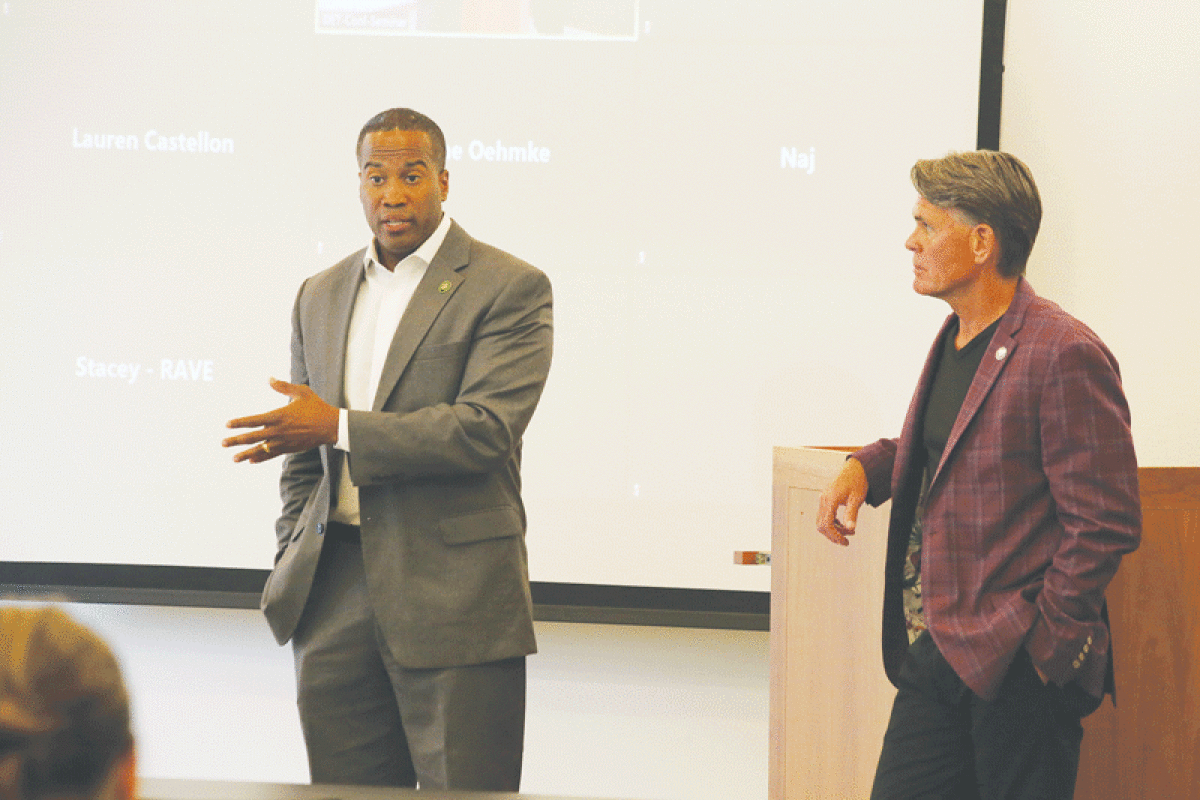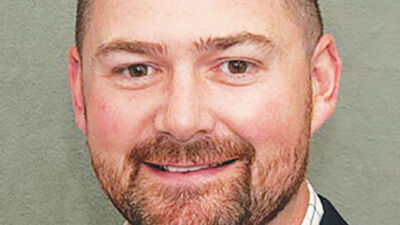MACOMB COUNTY — In a time where finances are all over the headlines, two of the region’s most prominent politicians took time in late June to discuss the state of Macomb County’s economy.
U.S. Rep. John James, R-Shelby Township, and Macomb County Executive Mark Hackel joined Michigan business leaders for the “State of the Economy” forum in Detroit on June 26, held at the offices of law firm Butzel Long and sponsored by the Michigan Chamber of Commerce. The two elected leaders addressed the county’s defense and transportation industries.
A West Point graduate and former U.S. Army helicopter pilot, James expressed interest in securing a new fighter program for Selfridge Air National Guard Base.
“When you look at the degradation of our fighting force here in Michigan — the A-10 Warthog, that fighter mission is being run off — we need to make sure that we have a fighter to replace it here,” James said. “We’re going to lose not only the economic impact but the likelihood of getting another fighter here. We cannot allow that to happen.”
Currently home to KC-135 aerial refuting and A-10 attack jet missions, local officials have been trying to secure a fighter mission as the U.S. Air Force remains on track to eliminate its A-10 programs. A recent attempt to secure a training school for foreign F-35 fighter jet pilots failed earlier this year, but the base recently unveiled a new hangar for servicing fighter jets. Hackel shared news about a runway reconfiguration that could make Selfridge a more attractive destination for a future fighter jet mission by shifting the runway north to reduce the base’s effect on a residential neighborhood.
Moving into the automotive part of the discussion, Hackel spoke about how the county is improving its infrastructure. He said one such way of doing that is by building high-tech road corridors.
“We have the most connected corridors than any other county, not only in the state of Michigan, but I dare say the entire country,” Hackel said. “We started years ago when they started implementing some of the technology for cameras to visualize what’s happening on our roads.”
The potential of the connected corridors includes changing traffic light patterns in real time and notifying drivers of obstacles ahead of them.
James focused his remarks on the auto industry, expressing a disinterest at emissions regulations set to impact cars for model year 2027 and his disappointment toward the industry for not aggressively opposing them.
The White House is directing companies to have at least half of all passenger cars and light trucks sold in 2030, and all medium-duty and heavy-duty vehicles sold in 2040, be “zero emission,” and James in particular took issue with the penalties for noncompliance.
“The penalties that will happen between when this regulation goes into effect … will result in $90 billion (in) additional costs to the industry, and that’s not including an additional $9 billion in penalties,” James said. “If you take a look at the nearly $100 billion that would be through the enactment of this regulation at the end of that model year, it is the government taking a punitive approach to businesses.”
James also expressed skepticism at the focus on electrification as a substitute for gas-powered cars, stating his desire for “an all-the-above energy approach” for future cars.
“I have a hybrid; I have nothing against an ‘all-the-above’ energy approach,” James said. “If you want a battery car, get a battery car, but forcing people into one thing or another and then penalizing our job creators for noncompliance on a short or nearly impossible timeline is a recipe for disaster.”
 Publication select ▼
Publication select ▼























